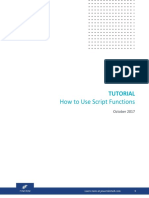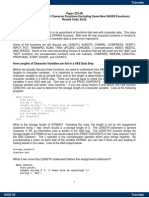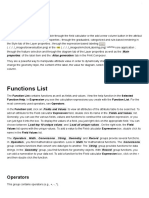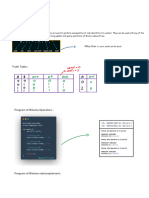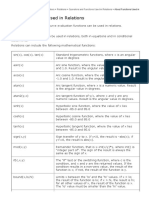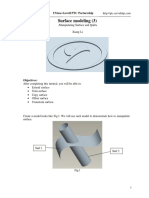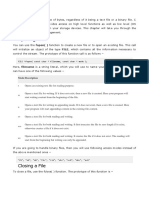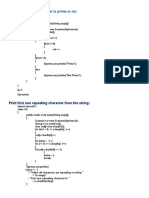0% found this document useful (0 votes)
93 views2 pagesOperators and Functions For Strings
This document discusses operators and functions for strings in relations and parameters. It lists string operators like ==, !=, +, and functions like itos(), search(), extract(), string_starts(), string_ends(), and string_match(). It provides examples of using each operator and function, such as comparing strings for equality, concatenating strings, converting integers to strings, searching/extracting substrings. It specifically notes the itos() function returns an empty string for an integer parameter value of 0.
Uploaded by
atmelloCopyright
© © All Rights Reserved
We take content rights seriously. If you suspect this is your content, claim it here.
Available Formats
Download as PDF, TXT or read online on Scribd
0% found this document useful (0 votes)
93 views2 pagesOperators and Functions For Strings
This document discusses operators and functions for strings in relations and parameters. It lists string operators like ==, !=, +, and functions like itos(), search(), extract(), string_starts(), string_ends(), and string_match(). It provides examples of using each operator and function, such as comparing strings for equality, concatenating strings, converting integers to strings, searching/extracting substrings. It specifically notes the itos() function returns an empty string for an integer parameter value of 0.
Uploaded by
atmelloCopyright
© © All Rights Reserved
We take content rights seriously. If you suspect this is your content, claim it here.
Available Formats
Download as PDF, TXT or read online on Scribd
/ 2
